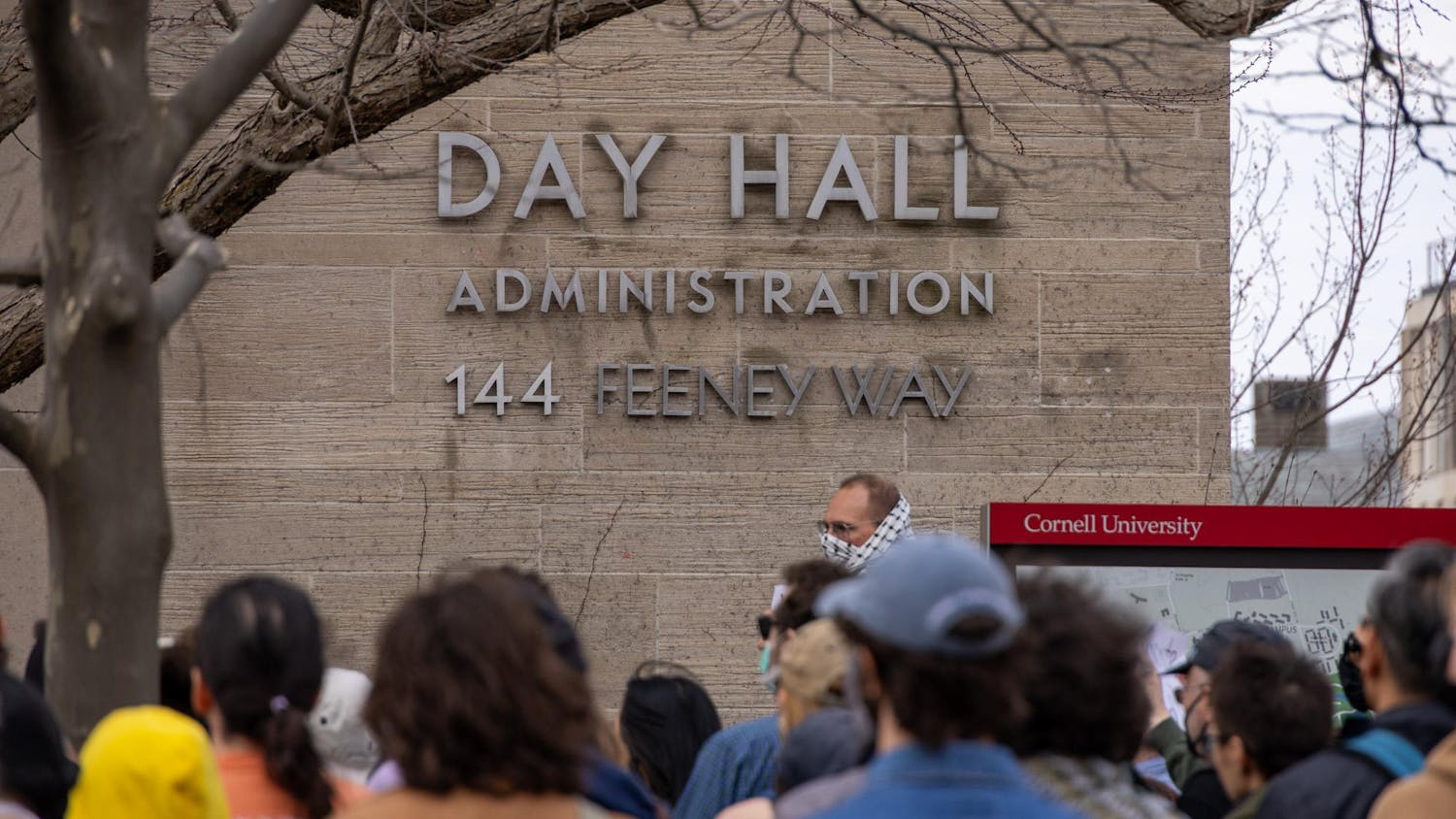For nine months, Ella Yitzhaki ’24 diligently prepared for the ACT. She attended several ACT prep classes each week and spent her Friday nights taking timed practice exams, hoping to improve her score.
After more than 100 hours of studying, Yitzhaki received her “dream score” on her first try, which she sent to Cornell during the 2019 early decision application cycle. Had she applied one year later, she wouldn’t have needed to send it in at all.
Cornell’s undergraduate admissions office updated its previous announcement online on Jan. 25, stating they would once again become test-optional and temporarily suspend testing requirements for 2022 first-year applicants. A primary factor in this decision was the pandemic, which caused many testing sites to limit seats and frequently cancel exams.
“We didn’t struggle with this decision,” wrote Shawn Felton, Cornell’s Senior Director of Undergraduate Admissions in a statement to The Sun. “We did not want students putting themselves or their families in harm’s way, nor risking their health and well-being, for any reason.”
Cornell adopted this test-optional policy in April 2020, making it the first school in the Ivy League to waive the SAT/ACT requirement for 2020-2021 applicants.
“We knew it was the right thing to do and we knew this would ease the minds and diminish stress for prospective students and families, and college- and community-based organization counselors with whom we work closely,” Felton wrote.
Vanessa Fang ’25, an incoming first-year student, was one student who took advantage of the test-optional policy during the 2020 early decision application season, experiencing mixed feelings about her decision to apply without her standardized test scores.
“Even though Cornell admissions reviewed our applications holistically … I still feared that I wouldn't be considered as a valid applicant because I lacked an SAT/ACT score in my application,” Fang wrote in an email. “At the same time, it gave me hope. I wasn't the best test-taker, so I took this opportunity to write the most compelling essays I could write.”
Many current and prospective students have had an experience similar to Yitzhaki — months of unpleasant preparation, late nights filled with practice problems, stress and lost time. Some, like Ricco Venterea ’24, said they felt their time would have been better spent doing other things.
“To be honest, I would have done things that were fun for me — reading, playing music, watching TV,” Venterea wrote in an email to The Sun. “College applications are already stressful enough, so I would have taken a break from everything and just enjoyed myself. Ironically, I would have focused more on academics with the time I spent studying for the ACT/SAT.”
Adopting the temporary test-optional policy had students contemplating the value of using standardized test scores in evaluating college applications.
While the SAT and ACT allows admissions officers to compare applicants from different schools — where grades and courses vary significantly — on a level playing field, students noted that these standardized test scores highlight numerous flaws including wealth inequality.
“I had the luxury to devote more … time,” Yitzhaki said. “I didn’t have to do an extra job, I could come back from dance [practice], do ACT [prep], and eat dinner. Some folks don’t have that luxury and it’s very disheartening.”
Cornell’s new policy for 2022 applicants has some prospective students feel relieved. William Wu, a high school junior at the Bronx High School of Science in New York City, said the pandemic made efforts to prepare for and take the SAT more difficult.
“As a student who's interested in applying to Cornell next year, I will definitely be less stressed if my SATs get canceled again,” Wu wrote in an email to The Sun. “This year, I wasn't able to be in an actual classroom to pre[pare] for my SATs and I feel like that group part of prepping would've been really helpful.
In the recent announcement, the University addressed the concerns of prospective students who have already taken or are able to take SAT and ACT exams, writing that students would send in scores regardless of the policy change, and that Cornell will not yet permanently suspend testing requirements. Still, Cornell is open to discussion on this policy.
“This extension was supported by college and university leadership and we plan to do some examination of the policy change and its impact on our selection process and our enrollment,” Felton wrote. “We will then be able to consider the future of the currently paused ACT/SAT freshman admissions requirement.”











